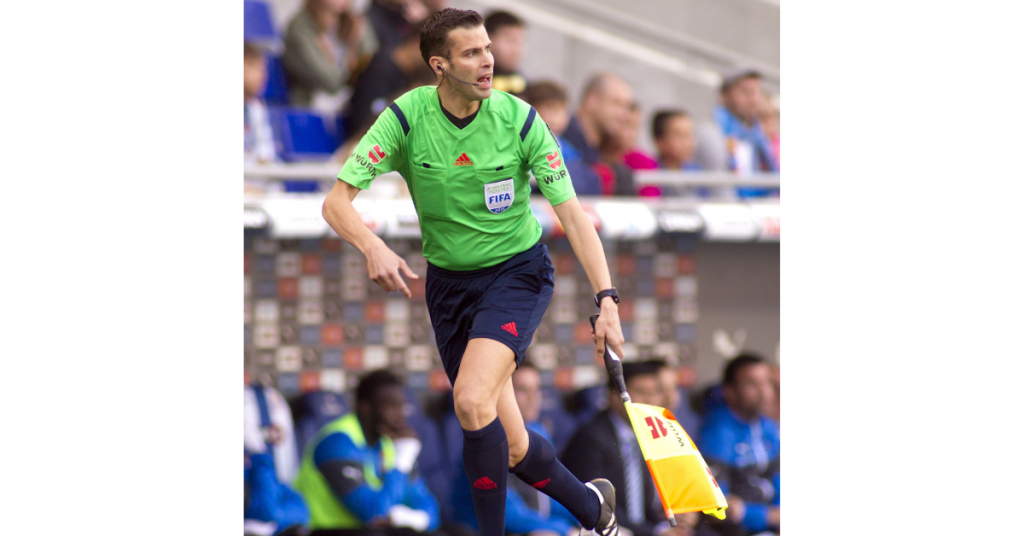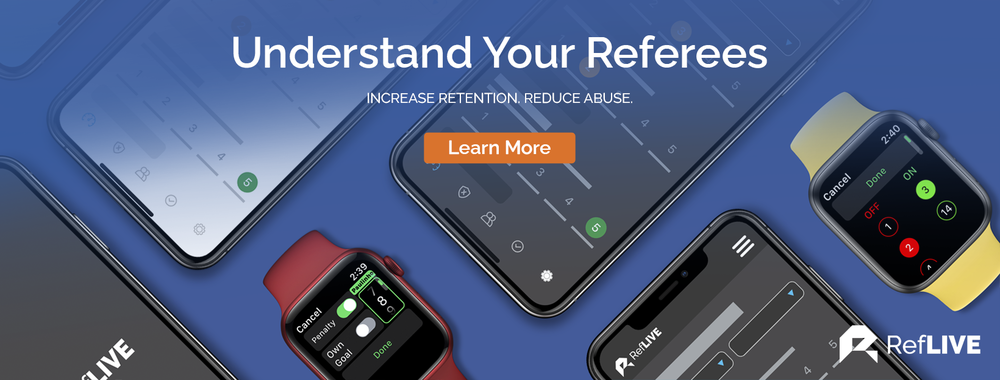Create your goals in specific, observable and measurable terms
Setting general goals such as improving your foul detection accuracy is easy but it becomes hard to determine how to go about doing this without specific instruction. Specifying how and when to do things can help with this. A measurable goal is one you can quantify, in the sense that you know exactly how close you are to achieving that goal. Rather than saying “most of you have a good decision making accuracy percentage” referee coaches reporting the percentage of referees who meet the set criteria can update the group the following week until 100% of the group of officials have achieved this goal. Observable goals are those that can be measured and are specific. Thus, identifying what comprises a general goal can help develop specific criteria that are observable and measurable, especially if the terms of a specific date or number of fixtures.
Clearly set out the time constraints
Asking officials to improve their percentage of fouls correctly identified will be ineffective unless you have a specified date or point in time to work towards. Is this goal to be accomplished by the end of the week? By the end of the month? The end of the season? Well stated goals should be timely.
Use reasonably difficult goals
Reasonable goals are better than easy or very difficult goals because they push referees to work hard and extend themselves in order to meet the goals. They are also more satisfying when attained.
Make note of and regularly monitor progress
Goals are completely ineffective if you forget them. Write, type or make a voice note of them in as specific terms as you possibly can. Keeping a journal or a publicly posted goal monitoring chart can help officials and their coaches with the process of monitoring these goals.
Use short term goals to bring long range aims to fruition
Goal setting is much like the teams we officiate trying to win the league title, they must focus on winning the next fixture at any given time in order to achieve the ultimate prize. The long range goal of reaching your main goal requires strategic short-term goals setting.
Set training as well as matchday goals
It is important, as a referee, to recognise the critical importance of effective training to prepare for any appointment we receive. Training goals should complement matchday goals as often as possible. Goals related to work ethic and attitude during practice are essential. Making the time ready to train, warming-up with enthusiasm and paying attention to the advice offered by your referee coach(es) or possibly fitness coaches are examples. Additionally, complementing your colleagues on good effort can promote team cohesion if you end up working together on games in the future. This will see that game officiated in a supportive environment that is fun to be involved with. Training goals should also involve using mental skills such as imagery which can help with skill learning, strategies and working through performance anxiety.
Be sure that goals are taken on board by the referee
It is important that referees feel in control (self-determined) of their goals. Ensuring that officials accept and take goals on board is one of the most important features of goal setting. If referees set their own goals, they will most likely take them into their psyche. Sometimes when coaches set goals for officials, they aren’t taken seriously.
Consider the personality and differences of the individual in goal setting
Coaches should also keep in mind that the referee’s personality characteristics can determine the effectiveness of goal setting. Whether or not an official is ego oriented (compares their performance to that of others) or task oriented (compares their own performances to each other) could determine the extent to which they will be able to take on board goals. When referees define success as finishing above colleagues in the merit table, they have little control over the outcome. Ego oriented officials also have a tendency to set unrealistically high or low goals so they can have an excuse if their goals are not attained. Task oriented referees set goals about doing their best and making some improvement experience success more frequently, persist with challenges longer and are more confident.
Set positive goals as opposed to negative goals
Goals can be framed either positively (e.g., increase the number of sprints I make during a game) or negatively (e.g., reduce the number of times I fail to recognise foul play). Whenever possible, set goals in positive terms by focusing on good practice that should be present rather than that which should be absent. This can help referees focus on success rather than failure.
Identify a strategy to achieve your goals
It is important to understand the difference between setting goals and identifying a strategy that will help you accomplish your goals. For example, general objective goals and outcome goals are often set without strategies. Consider the goal of making the University of Tennessee basketball team. A high school student would have to research the GPA necessary to get into her academic program of interest, adhere to a strict study schedule to make good enough grades on assignments and test in various classes, work hard at her shooting, throwing and passing skills as well as her offensive and defensive skills among setting other important goals necessary to get to summer scouting camps. This is the same for referees who must perform well further down the ladder in order to achieve promotion and therefore the opportunity to officiate a higher standard of football.
Ensure you have good support support networks as you embark on achieving your goals
Significant others in the life of a referee can help ensure goals are achieved. It is common to hear the appointed referee to the FA Cup Final talk of how they couldn’t have made it without family support for the sacrifices they had to make to get to the domestic pinnacle. In addition to your technical coach, this usually includes other coaches, family, friends, teachers and colleagues. Effort should be made in educating these individuals about the types of goals that you are setting for yourself and the importance of their support in encouraging progress towards the goals.
At The Third Team I work individually and in collaboration with different professionals where I have developed workshops associated with Resilience and Mental Toughness Development to help referees. The workshops are interactive, where referees are encouraged to open up and share their experiences to help each other.
Feel free to contact me if you’d like to know more about my workshops and how I could help you or your officials.
Best Wishes,

Nathan Sherratt
Referee Educator & Managing Director of The Third Team

Nathan Sherratt
Nathan Sherratt, Referee Educator, Resilience Trainer and Managing Director of The Third Team. A Mental Toughness Practitioner based in County Durham, North East England.


